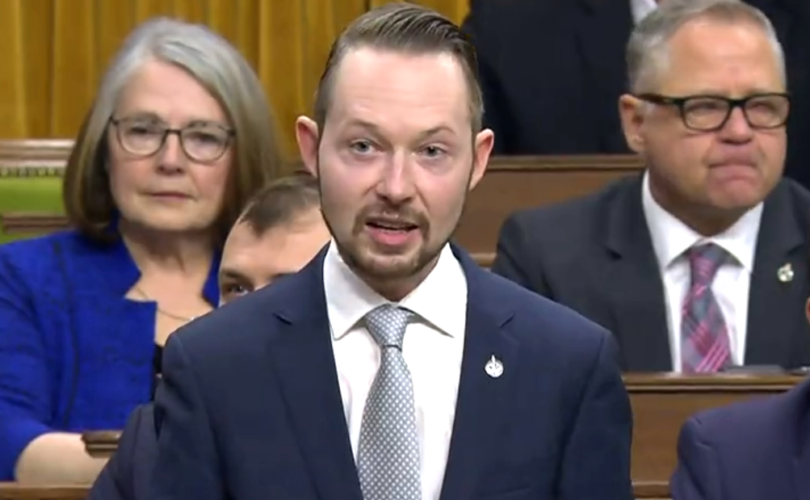OTTAWA (LifeSiteNews) – The Conservative Party of Canada (CPC) is calling upon the Liberal government of Prime Minister Justin Trudeau to scrap in its entirety a planned expansion of the nation’s euthanasia laws to include those with mental illness.
The Liberals had earlier announced a plan to delay the law until next year.
In a statement posted last Thursday by CPC MP Michael Cooper, who serves as the Conservative Shadow Minister of Democratic Reform, he said on behalf of his party that the Liberal’s one-year delay of medical assistance in dying (MAID) “for mental illness is an admission of failure.”
“Offering death instead of care to persons struggling with mental illness will be just as wrong a year from now as it is today. Conservatives are calling on the Liberals to scrap it completely,” he noted.
Last Thursday, Trudeau Minister of Justice David Lametti introduced a bill that will delay the expansion of Canada’s euthanasia laws to include those suffering solely from mental illness and “mature minors” after intense pushback from pro-life and mental health groups.
Bill C-39 is titled An Act to amend An Act to amend the Criminal Code (medical assistance in dying) and went through its first reading this morning.
The text of the bill simply states that Canada’s expanded MAiD rules allowing those with mental illness to obtain euthanasia will now come into force on “March 17, 2024” instead of this month.
During debate on the bill, Canadian Minster of Mental Health and Addictions Carolyn Bennett caused a stir after appearing to have a “Freudian slip” in the House of Commons when she commented that people who provide euthanasia services are indeed “trained” to “eliminate” suicidal people.
As for Cooper, in his letter he noted last week that the CPC has been “united and unwavering in our opposition to expanding the Liberal government’s medically assisted death regime to Canadians whose sole underlying condition is mental illness.”
“This last-minute delay is indicative of the Liberal’s reckless and rushed approach to expanding medically assisted dying to more vulnerable Canadians. It also comes after much criticism from experts and advocates for impacted Canadians across the country,” Cooper wrote.
“Experts have been clear that MAID for mental illness cannot be implemented safely. It is impossible to determine irremediability in individual cases of mental illness. MAID for mental illness will also create clinical challenges, blurring the line between suicide assistance and suicide prevention.”
Cooper then said that a “delay is not enough,” adding that “Conservatives are calling on the Liberal government to withdraw this dangerous expansion.”
“Conservatives do not believe that MAID is an acceptable solution to mental illness and psychological suffering. Our healthcare system should help people find the hope they need to live, not assist their deaths,” Cooper wrote. “Canadians can’t trust this Liberal government and their NDP-coalition partners to do what’s right and protect the lives of the most vulnerable.”
CPC leader Pierre Poilievre has been critical of the expansion of Canada’s MAiD laws, saying last week in the House of Commons: “Will the Liberals recognize that we need to treat depression and give people hope for better lives rather than ending their lives?”
Canada’s MAiD laws were originally set to be expanded in March 2023 to apply to those suffering solely from mental illness and even children deemed “mature minors.”
The expansion was to come as part of the 2021 passage of Bill C-7, which further liberalized the practice of euthanasia after it was first legalized in 2016.
Just before Christmas, Lametti said the government would be looking to delay the expansion of MAiD laws after much pushback from pro-life groups, mental health associations, and conservative politicians.
Pro-life advocates at the national level have long sounded the alarm over Prime Minister Justin Trudeau’s Liberal government’s euthanasia program, which has continued to increase in its permissiveness.

